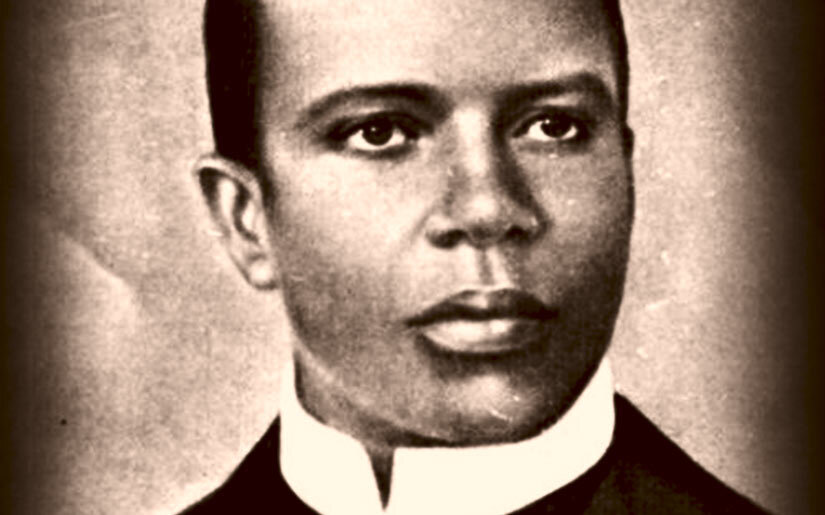Juneteenth is a good day for reflection and consideration of the official ending of slavery as the very last slaves in the US were notified of the emancipation in Galveston, Texas in 1865. Is it appropriate to say “Happy Juneteenth”? Maybe? It’s not a day for white folks to relax and think about grilling burgers.
Scott Joplin
Something good happened that day, no doubt. But between peonage, Jim Crow, housing covenants, redlining, the carceral state, and sub-prime lending, we have a lot remaining on our plate. 155 years later, what durable progress has been made towards making the independence we celebrate on July 4, applicable to those whose whose freedoms we commemorate on June 19? Has it been enough? Surely 155 should have been enough time to unwind the sins of our past, but instead many seem to want to forget about and even compound them. I’m FROM Texas and I didn’t really know what it was about until my late 20’s.
Anyway, for composer Scott Joplin, who was born in 1868 in Texarkana (or maybe Marshall?), Texas, this wasn’t an intellectual debate, this was his life. Imagine turning 6, say, in 1874 and coming to the realization that literally everyone who looked like you in your home state, just 10 years earlier, were considered to be property rather than persons. This thought never fully left Joplin’s mind. If you’ve been spending too much time online, reading me spend too much time online talking about Florence Price, you’ve probably heard me mention that she came into wider recognition thanks to the performance of her first symphony at the Chicago World’s Fair in 1933. Joplin’s history is similarly tied to the Chicago World’s Fair of 1893, an event which played a role in the spread of popularity of ragtime. Flash forward to 1907, and Joplin had moved to NYC to work on his second opera, Treemonisha.
Treemonisha is a wild tale that takes place back initially in a forest of a former slave plantation near Texarkana. The eponymous character, Treemonisha, is a freedwoman who is taught to read, defends her town against “conjurers,” and ends up being elected by the townspeople as their new leader. This, sadly, is a bracingly powerful tale, far more than we would wish it would be in the year 2020, but doubtless even more so in 1907.
Joplin’s wife, Freddie Alexander, is thought to be at least the partial inspiration for it. She was a suffragette and black culture activist. The score and libretto were written completely by Joplin. For those outside of the music business: THAT IS A BIG DEAL. Word is that he was introduced to the music of Wagner in St. Louis and learned that Wagner wrote his own libretti, so he thought he’d do the same. As a black man at the turn of the previous century, it is widely believed that he never himself had the opportunity to attend a grand opera production. Yet he composed two himself. What a tragedy that Treemonisha was never performed during his lifetime, and the one opera that was (his prior opera), is now lost to us.
Main image from the promotional materials for the 2020 production with Volcano Theatre Company, Moveable Beast Collective. Weyni Mengesha, stage director. New orchestration by Jessie Montgomery. Reza Jacobs, Conductor. Neema Bickersteth, Treemonisha. [Planned but tragically put on ice by COVID-19]
Listen
Purchase



